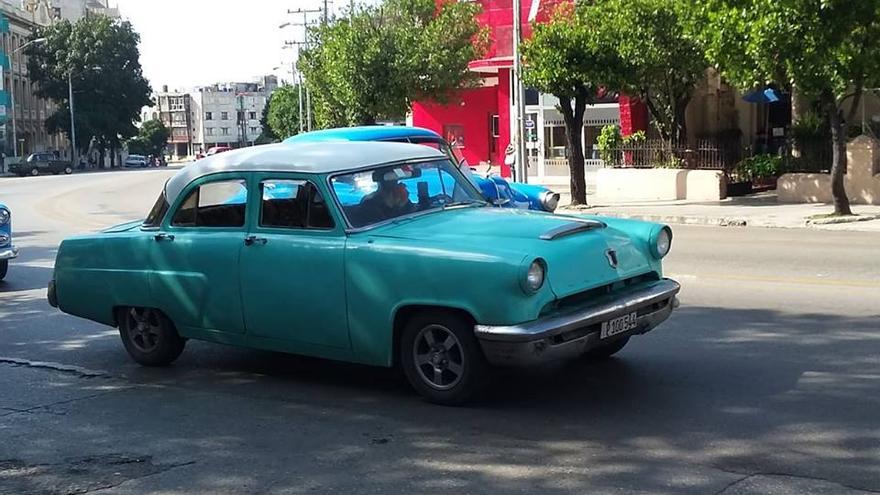
![]() 14ymedio, Ariel Hidalgo, Miami, 21 December 2018 — The tug-of-war between a government leadership accustomed to impose its will like an absolute monarch and the sectors of the citizenship that are beginning to energetically claim their rights through peaceful resistance as actors of an emerging civil society, has come to the fore in recent months, especially in December of 2018, a year that, when it concludes, will mark sixty years of the same group in power. These days of protest show conclusions and lessons that we can not fail to point out:
14ymedio, Ariel Hidalgo, Miami, 21 December 2018 — The tug-of-war between a government leadership accustomed to impose its will like an absolute monarch and the sectors of the citizenship that are beginning to energetically claim their rights through peaceful resistance as actors of an emerging civil society, has come to the fore in recent months, especially in December of 2018, a year that, when it concludes, will mark sixty years of the same group in power. These days of protest show conclusions and lessons that we can not fail to point out:
1. The offensive of government restrictions such as the paquetazo* and Decree 349, is a clear indication of the concern of the Party-State leadership, and in particular of the hard-line sector, over the development of civil society in recent times: independent galleries, alternative theaters, private recording studios, blogs, the unbridled growth of the self-employed market, in particular the paladares (private restaurants), the private transporters and an infinity of micro-businesses with a wide variety of services.
This is something reminiscent of the growth of the Third State on the eve of the French Revolution in the face of the excessive obstacles of the feudal monarchy. In this case, it is a living and creative force, both economically and culturally, against a political-military superstructure that slows down its development.
2. The power has made a serious mistake in imposing such unpopular measures less than three months from the date chosen to carry out the popular consultation on its proposed constitutional reform, probably because of its confidence that it can continue to benefit from the consent of the population.
Either because of indolence or fear, or, in the later instance, because they feel they can manipulate the results of the referendum to their benefit without unfavorable consequences, as has been done on previous occasions, or because they underestimate the response capacity of civil society, including the protests of well-known personalities which, until now, have distinguished themselves by their support for that leadership.
The result has been a malaise that the opposition could exploit in favor of the campaign to vote NO on the constitutional reform.
3. The granting of access to the Internet through cell phones on the same day, December 6, when the restrictions announced against artists and self-employed workers came into force, shows that their main objective was to divert the attention of the population to better weather the storm of protests. The internet access had been delayed by the fear of unleashing the “untamed wild colt” of the internet on the population with their computers and cell phones.
The new telecommunications technology undermines all centralized structures, mainly totalitarian models, as it breaks the monopoly of government information, dissemination and propaganda, enables rapid communication between citizens in different locations, and facilitates the recording of the outrages of the authorities and a rapid international dissemination through mass communication networks.
The oppressors, especially those who hide behind Marxist ideology, know very well how the changes of social regimes take place, a theory embodied by Marx himself in “A Contribution to the Critique of Political Economy,” where he wrote “the productive forces” (read: technology) “when reaching a certain stage of development (…) are in contradiction with the relations of existing production” (read: the economic-political structures of the oppressors) which generates a deep crisis of the system, “and thus opens an era of social revolution,” that is, a time of profound changes.
4. The fact that after the start of the protests the regime reacted by reversing some of the announced restrictions means that citizens (that is, those nominally without power) do exercise power when they become aware of their rights and express, publicly, their willingness to change.
5. The opposition must take note of the magnitude of the protests in general that far surpassed the most numerous of its political demonstrations and adjust, accordingly, its steps and its demands. Instead of urging the population to join them, they must unite themselves with that population in their demands and support them as much as possible, focusing on their immediate needs.
To the extent that they give their support to these spontaneous initiatives, they will achieve the sympathies and support of the people, they will gain prestige, and even, in this way, they will be able to call on them when they need to reach more far-reaching goals.
*Translator’s note: A package of restrictions tightening the conditions of self-employment.
____________________________
The 14ymedio team is committed to serious journalism that reflects the reality of deep Cuba. Thank you for joining us on this long road. We invite you to continue supporting us, but this time by becoming a member of 14ymedio. Together we can continue to transform journalism in Cuba.
